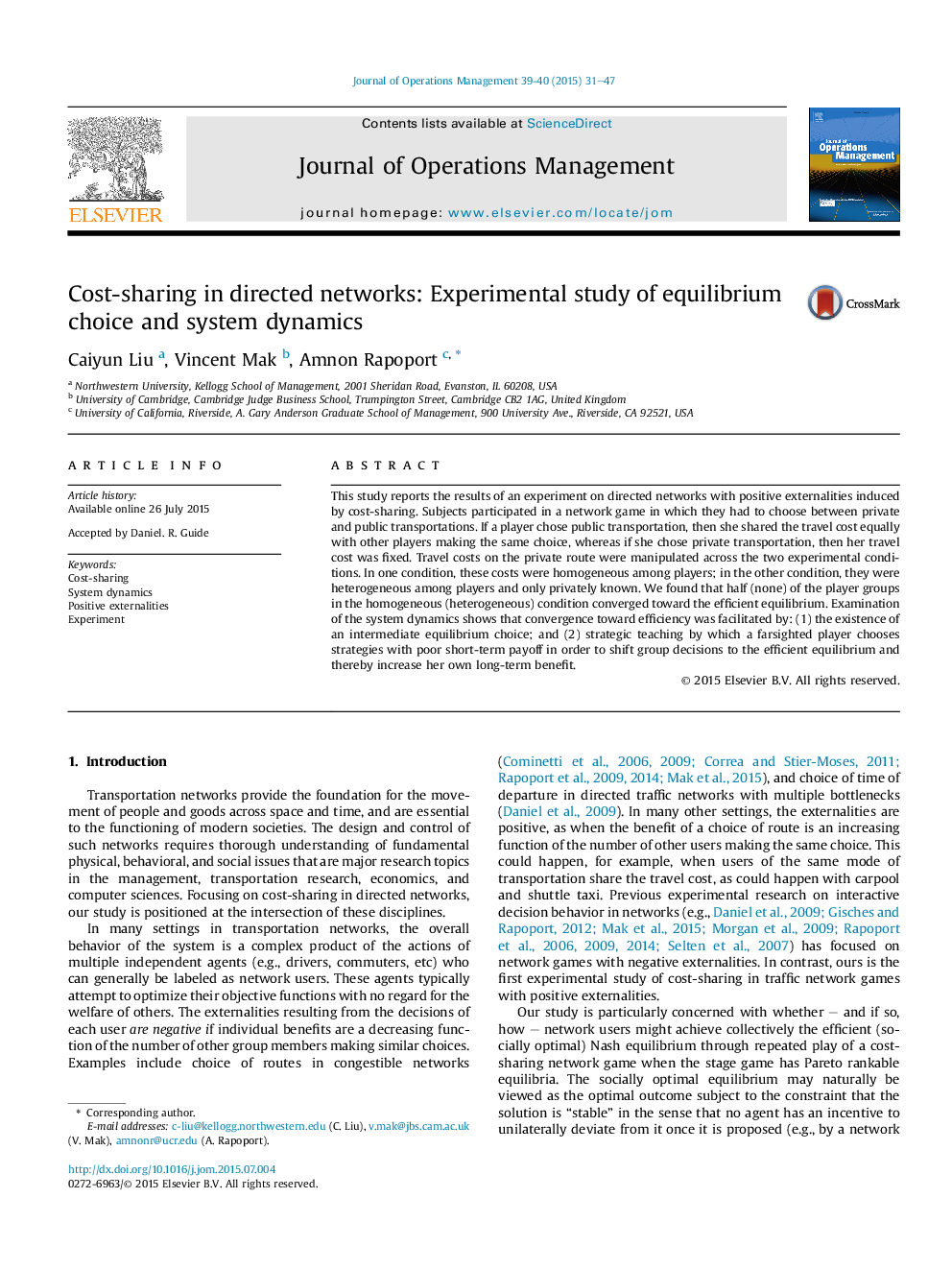| Article ID | Journal | Published Year | Pages | File Type |
|---|---|---|---|---|
| 1031626 | Journal of Operations Management | 2015 | 17 Pages |
This study reports the results of an experiment on directed networks with positive externalities induced by cost-sharing. Subjects participated in a network game in which they had to choose between private and public transportations. If a player chose public transportation, then she shared the travel cost equally with other players making the same choice, whereas if she chose private transportation, then her travel cost was fixed. Travel costs on the private route were manipulated across the two experimental conditions. In one condition, these costs were homogeneous among players; in the other condition, they were heterogeneous among players and only privately known. We found that half (none) of the player groups in the homogeneous (heterogeneous) condition converged toward the efficient equilibrium. Examination of the system dynamics shows that convergence toward efficiency was facilitated by: (1) the existence of an intermediate equilibrium choice; and (2) strategic teaching by which a farsighted player chooses strategies with poor short-term payoff in order to shift group decisions to the efficient equilibrium and thereby increase her own long-term benefit.
